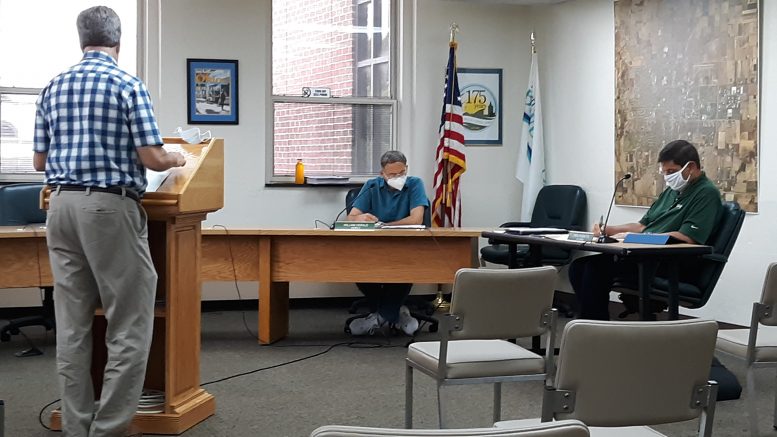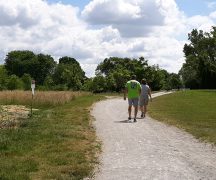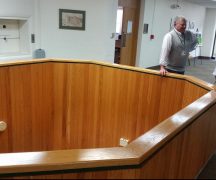By JAN LARSON McLAUGHLIN
BG Independent News
COVID-19 has been a drain on Bowling Green’s city finances – but the budget left in its wake is neither rosy nor dire.
City Finance Director Brian Bushong presented an update on the municipal finances to a City Council committee on Monday evening.
The bottom line is that revenues are beginning to show signs of improvement as the economy sees a U-shaped revival – not the quicker V-shaped recovery, Bushong said.
“Certainly COVID is still having an impact on the economy and city finances,” he said. “But things can certainly be worse.”
Hardest hit is the projected income tax collected for the city. The amount projected from income tax revenue this year was $21.6 million. The actual amount will be about $1.6 million short of the original projection, Bushong said.
The shortfall in the income tax revenue affects not only the city’s general fund, but also several other departments that rely on income tax. Bushong listed the following drops in revenue for specific funds:
- Police levy: down $112,700
- Fire levy: down $289,800
- Water and sewer capital improvement fund: down $402,500
- Capital improvement fund: down $100,625
- Street repair fund: down $60,375
“How do we help cover those shortfalls in revenue?” Bushong asked.
The drop in income tax will be softened by city departments cutting back on expenses this year, he said.
“They have been very good at reducing their spending,” he said.
And state CARES funding has helped fill in some gaps. Bowling Green has received $2.25 million divided over three distributions of the funds. The money comes with strings, and can only be used for direct COVID related expenses such as plexiglas barriers, cleaning supplies, PPE, police and fire safety personnel costs, no-touch fixtures for faucets and door openers, and expansion of virtual meeting capabilities.
The city has until the end of December to spend the CARES funding.
“We’re grateful for that help,” Bushong said.
But the city’s general fund is likely to see a slower recovery than the overall economy, he predicted. In addition to the nosedive in income tax revenue, the city will continue to experience a drop in charges for services, such as electric usage and ambulance fees since both have seen major drops. The city is also bringing in less through court fees, fines and interest rates.
The parks and recreation fund has taken a major hit, with $496,112 less coming in than projected. Bushong explained that one-third of the parks and recreation budget comes from revenue for activities. And through September, only 28% of those fees had been collected.
But to help balance the losses, Bushong said the parks and rec department was able to decrease costs when it had to cut programs and staffing.
“They’ve been working very hard to cut expenses,” he said.
City Council member Sandy Rowland remarked how the city is faring better than projected earlier in the year when COVID hit.
“I’m just amazed our staff is able to make these cutbacks to bring us back,” Rowland said. “It’s because of the way we have handled our finances very tightly over the years.”





